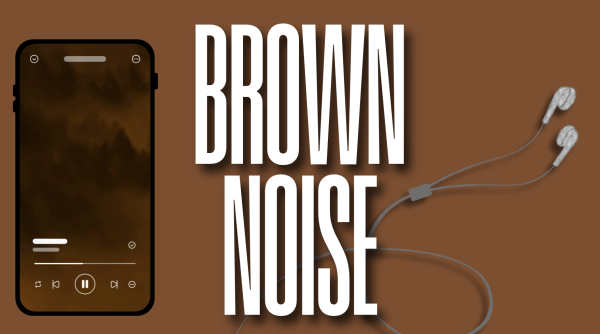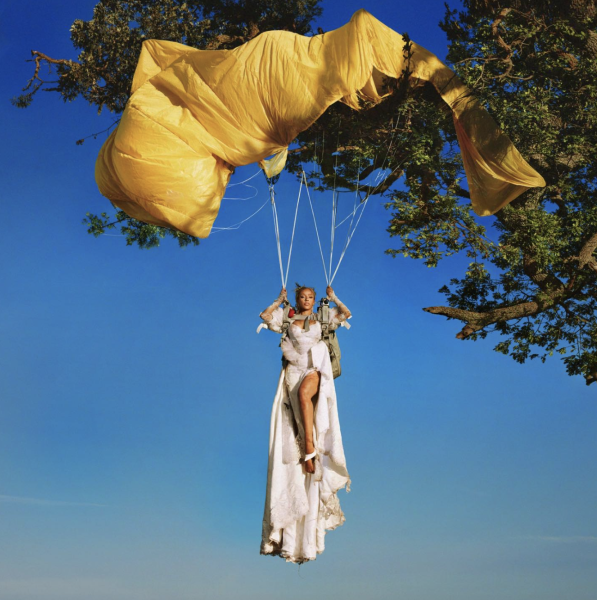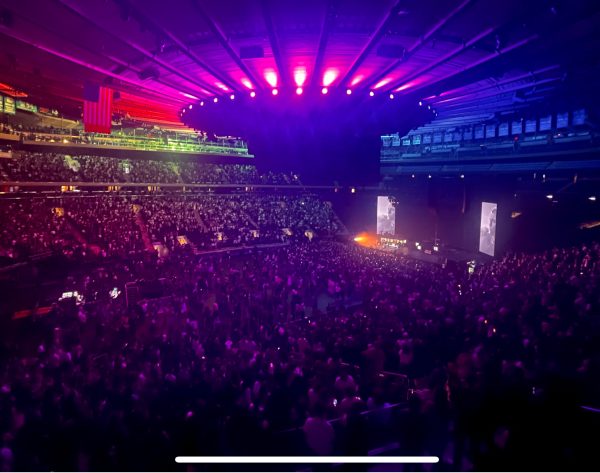Halsey is Royally Riveting in “If I Can’t Have Love, I Want Power”
It’s been a year since Halsey released her masterful “Manic” album, which served as a vessel of emotion placing mental health, heartbreak and LGBTQ+ rights in the spotlight. Although widely considered Halsey’s magnum opus, the album was criminally underrated, and was snubbed at the 2021 Grammy Awards. One year later, a pregnant Halsey sought to become more than an overlooked pop-singer. Now a new mother, Halsey gave birth to her best work yet in “If I Can’t Have Love, I Want Power,” displaying an unrivaled artistic dominance which commands her to be crowned queen.
Halsey has expertfully flirted with the rock genre before with songs like “Nightmare,” but she fully embraces the genre through her collaboration with Nine Inch Nails’ Trent Reznor. At first glance, listeners may not find the collaboration appealing since the two come from vastly different musical realms.. Yet, throughout the course of this 13-track album, Halsey and Trent Reznor become the duo that listeners and fans never knew they needed. Halsey has always shone brightly in her own right, but adding Reznor to the creative fray pushed her to new horizons. The album takes a noticeably darker tone with Reznor in the mix but shines brighter because of it.
Opening with “The Tradition,” which is darkly medieval in sound, it is clear Halsey is intent on unapologetically shattering conventions when she sings: “So take what you want, take what you can, take what you please, don’t give a damn/Ask for forgiveness, never permission.” The sound of piercing piano contours to Halsey’s bone-chilling vocals. Halsey proves she no longer feels the need to ask for permission from listeners or ex-lovers, who may not appreciate the work she doles out. She excellently follows this up with “Bells in Santa Fe,” opting for a gradually-intensifying beat and agonized vocals about struggling to find love. By the tense close of the track, Reznor makes it clear what he’s going to do on this album. He gives it a sharp edge that emotionally cuts listeners as they take in every note of his ravenous rhythms.
Halsey certainly helps to sharpen this edge on “Easier than Lying,” which is as hard rock as Halsey has ever gotten since “Nightmare.” It’s overall an energetic track, keeping listeners on the edge of their seats. There is almost no way of figuring out what comes next. From the weighty bass and fast-clicking snares, to Halsey’s riotous rock vocals, Halsey proves there’s no genre she can’t tackle. She may have built quite an impressive reputation in pop, but she knows she is more than the labels of an unappreciative music industry.
Then there’s “Lilith,” which sees Halsey further flexing her goddess muscles as she takes listeners back to the underground ‘90s hip-hop scene. The track bears the beat of a rough underground-era Eminem tape blended with the R&B vocal style of Drake. Although the track follows a simple stompy structure, the lyricism stays profound as it addresses Halsey’s turbulent romances which first seem blissful but ultimately end badly. It’s a nostalgic track which listeners and fans alike will definitely find themselves bouncing to.
Tracks like “You asked for this,” and “Honey” see Halsey laying claim to the punk-rock scene, offering a bit of sunshine for what has otherwise been Halsey’s darkest album to date. Listeners are bound to feel like they are being brought back to the early 2000’s when punk bands like Green Day reigned strong during their rock-opera days.
However, Halsey is sharpest when she remains vulnerable, and this is best seen on the track “Darling” when she sings, “Darling, don’t you weep/There’s a place for me/Somewhere we can sleep/See you in your dreams.” This hook alone is enough to guarantee there won’t be many listeners with dry eyes during the track. It’s the most sentimental track Halsey has gifted listeners since last year’s “Clementine,” and it’s sweeter because it doesn’t try to pander to mainstream pop audiences. The light yet sharp-as-glass acoustic guitar strumming during the track feels less like Halsey is playing a guitar, and more like she’s playing with listeners’ heart-strings.
The lead single, “I am not a woman, I’m a god” is the peak of the album. It perfectly hands Halsey the crown she’s been denied for years now. Between the seductive dark pop melody and Halsey’s cutting vocals, all listeners can do is kneel in awe as she solidifies her musical omnipotence.
Halsey may not have gotten enough love, but in 2021, she emphatically walks away with all the power.













































































































































































































